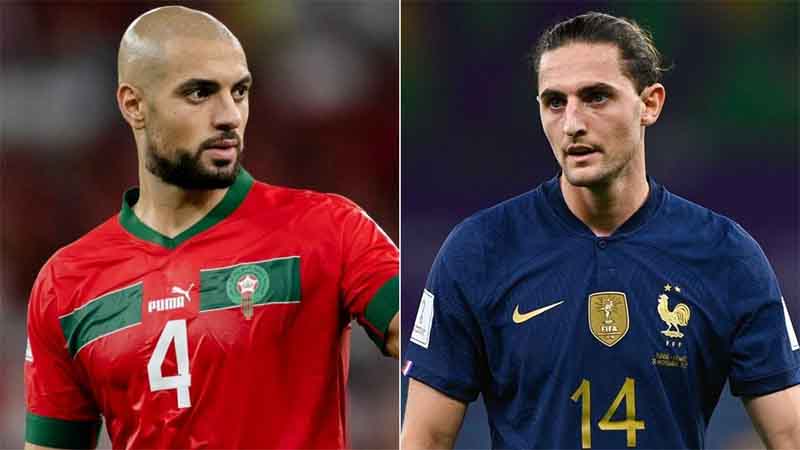In 2021, like in many previous years, when asked to choose their favourite cuisine, the French chose the unassuming couscous, which didn’t appear very French. It was regarded as another example of the growing Moroccan influence on French culture—from food to literature—and is a mainstay of Maghrebi cuisine.
The locals were enjoying their favourite comfort food when the subject of visas came up. The French government’s intention to reduce the number of visas issued to Moroccans by up to 50% has caused considerable controversy.
These two episodes perfectly encapsulate the nuanced interactions between France and Morocco. Because it will pit friends against friends and individuals representing their roots against their place of birth, it seems obvious that the World Cup semifinal between the two countries on Wednesday will feel like much more than simply a football game.
There is a larger historical and political backdrop for the game as well. On its ground-breaking road to the World Cup’s semifinals, Morocco has eliminated one former colonial power, Spain, which ruled over a region of the nation in the 20th century. They confront a different nation that used to colonise them in France, up until 1956.
One of the reasons Morocco has a sizable diaspora in France is said to be its colonial heritage. Of the more than 38 million individuals who call the country of North Africa home, just five million Moroccans reside in France. With about 18.4% of the total population as of 2019, they were the second-largest non-European Union immigrant community in France.
This Moroccan squad, which achieved history by becoming the first country from Africa to go to the World Cup semifinals, reflects it in its makeup. The team’s top player, Sofiane Boufal, as well as the coaches Walid Regragui and Roman Saiss are both French nationals.
“I have two nationalities. Although it is a joy and an honour to compete against France, it is just football. Regragui, known as the “Moroccan Guardiola,” declared on the eve of the game that when we play for Morocco, we are Moroccan.
Regragui believes that halting the French juggernaut will be difficult. But one can speculate that he might be more qualified than most to do the task. In 2008, Regragui played for Grenoble with Olivier Giroud, France’s all-time leading scorer. And among the five Moroccans working in France, Achraf Hakimi, one of his most important lieutenants, plays for Paris St-Germain alongside Kylian Mbappe, who is by far their biggest danger.
Before this match that has divided the sports loyalties of French-Moroccans, Hakimi and Mbappe have been chatting on social media. According to Rim-Sarah Alouane, a legal expert at the University of Toulouse who studies discrimination and human liberties, the game will be “a test of devotion for French citizens of immigrant background.”

